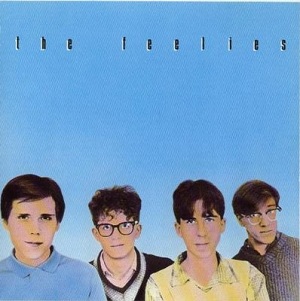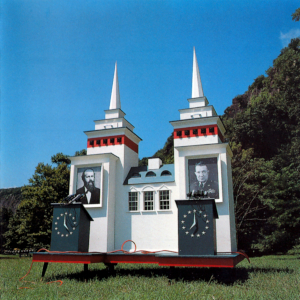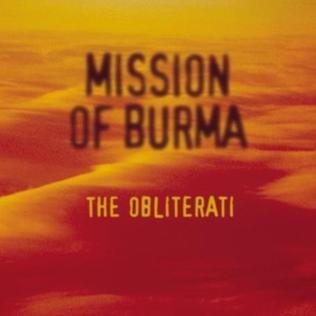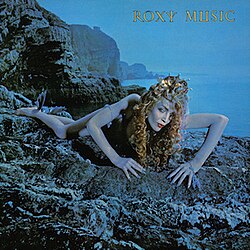I hoped King Gizzard and the Wizard Lizard’s newest album Flight b741 would feature a more concise set of songs than their recent, jammier endeavors. Well, be careful what you wish for. While the Gizz keep their songs to three or four minutes on this release (excepting a Wings-esque multipart closer), they’re…um…country rock songs.
If you live by the Gizz, you die by the Gizz, and I think it’s important to remember that while the band obviously loves cool genres like thrash, psyche, garage rock and komische, they equally enjoy less reputable genres like boogie, ‘70s AM gold, and, alas, this month’s offering, country rock.
Flight b741 is a regular hootenanny, with harmony vocals, honking harmonica, pedal steel, lyrics about “ma” and “pa,” major key jams, and album art not too far removed from Little Feat’s. Granted, KGWL’s guitars snarl more than, say, The Eagles, but I can’t help but feel this album feels like a genre excursion that doesn’t quite work. When it shoots for the barroom boogie of, say, Faces, you’re reminded that KGWL, for all their strengths, doesn’t have a singer as dynamic as Rod Steward, and when it tries to go all out cowboy…well, no one will confuse King Gizzard and the Wizard Lizard’s “Hog Calling Contest” for Bob Wills and His Texas Playboys. Unfortunately, it feels like these Aussies are playing cowboy rather than being cowboy.
This got me thinking about the advantages and disadvantages of prolificity.
The advantages are self-evident. The more music you release, the more opportunity you have to expand your audience, the more reasons you’ll have to keep touring, and the more product you’ll have to sell to your fans. Capitalism aside, though, it has got to be artistically fulfilling to just keep cranking. No band, after all, is faster or more adept at digesting a genre of music and spitting out an Aussified take on it. Flight b741 is a denser, crisper record than the Gizz’s earlier excursions into country funk, it showcases some admittedly impressive group harmonies, and gives everyone in the band an opportunity to sing lead. Music, as a hobby and as a pastime, gives back everything you put into it, and even a creative cul de sac leads to personal growth.
But this (hopefully) sideways artistic development comes at an expense. Consider, for instance, that some of Led Zeppelin’s most disliked songs are “D’yer Mak’er”, in which they try reggae, and “The Crunge,” in which they try funk, only to discover that they are not very good at playing either. Could you imagine if Zep made ALBUMS out of those songs? Would we think of them the same way? A weird genre excursion on an album’s B-side is sure to draw less opprobrium than 41 minutes of weird genre excursions. When considering the totality of a band, it’s defined as much by its successes as its failures. Besides, when a band’s catalog has as many duds as hits, it can be a minefield for new listeners.
But enough about KGWL’s 27th (!) record. I want to celebrate an album that was released on the same day, August 9, 2024, by another hyper-prolific, garage rock godhead, Osees’ SORCS 80. SORCS 80, their 29th (!!) tackles a genre of music that’s new to Osees, but, unlike Flight b741, it feels new in general. Influenced by their 2022’s lo-fi punk album A Fowl Form and last year’s follow up the synth-rock Intercepted Message, Osees decided to make a punk album with synthesizers and samplers, forgoing guitars all together. The songs on SORCS 80 are stripped to the bones, often nothing more than drums, a synth bass line, and shouted lyrics – with one genius addition: saxophone. That’s right, SORCS 80 is what would happen if the band Morphine played punk. There’s no reason Osees should be innovating this hard 29 albums in, but, and this is the ultimate rationale for prolificity: if you shoot a bunch of shots, some of them are going to go in.







